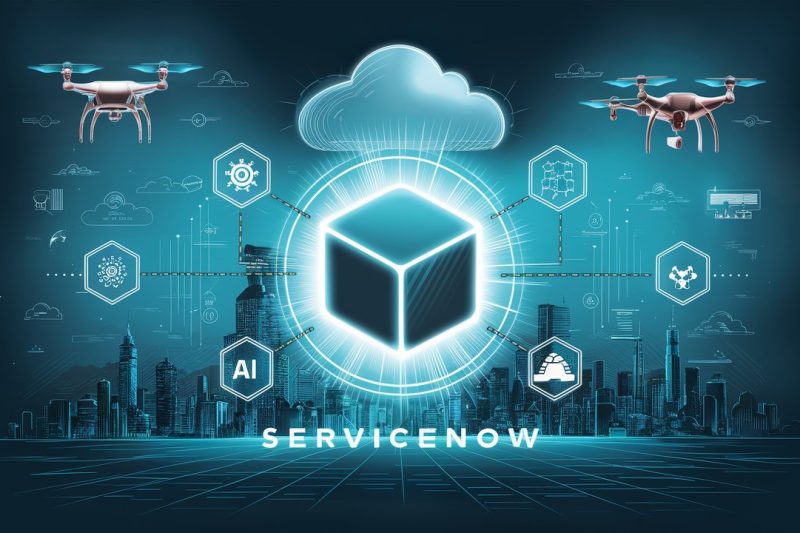SERVICE NOW
Core Concepts of ServiceNow
Platform-as-a-Service (PaaS):
ServiceNow operates as a PaaS, allowing organizations to build and deploy custom applications on its cloud platform. This flexibility enables businesses to tailor the platform to meet their specific needs.
IT Service Management (ITSM):
ServiceNow is best known for its ITSM capabilities, which help IT departments manage the end-to-end delivery of IT services. It includes modules for incident management, problem management, change management, asset management, and more.
Enterprise Service Management (ESM):
Beyond IT, ServiceNow extends its workflow automation and service management capabilities to other business functions, such as HR, customer service, and facilities management, promoting a unified approach to service delivery across the organization.
Workflow Automation:
At its core, ServiceNow focuses on automating workflows to improve efficiency and reduce manual tasks. Its robust workflow engine supports the automation of complex business processes, enabling faster and more consistent service delivery.
AI and Machine Learning:
ServiceNow incorporates artificial intelligence (AI) and machine learning to enhance its capabilities. These technologies are used to automate routine tasks, predict issues before they arise, and provide intelligent recommendations.

ServiceNow is a leading cloud-based platform that specializes in IT service management (ITSM), enterprise service management (ESM), and digital workflow automation. Founded in 2004 by Fred Luddy, ServiceNow has grown to become a significant player in the enterprise software market, providing solutions that enhance operational efficiency, improve service delivery, and facilitate digital transformation.
ServiceNow Ecosystem
IT Operations Management (ITOM):
ITOM solutions from ServiceNow help organizations manage infrastructure and operations more effectively. It includes modules for event management, performance monitoring, and cloud management, ensuring that IT services are always available and performing optimally.
HR Service Delivery (HRSD):
HRSD automates HR processes and provides a central portal for employees to access HR services. It enhances the employee experience by streamlining onboarding, managing employee requests, and automating repetitive HR tasks.
Customer Service Management (CSM):
CSM improves customer satisfaction by automating customer service workflows and providing a unified platform for managing customer interactions. It includes features for case management, service requests, and customer self-service.
Security Operations (SecOps):
SecOps helps organizations respond to and manage security incidents more efficiently. It integrates with existing security tools to provide a centralized platform for threat intelligence, incident response, and vulnerability management.
Application Development:
ServiceNow’s platform includes tools for custom application development, allowing businesses to create tailored applications that address specific operational needs. Its low-code/no-code development environment makes it accessible to a wide range of users.
Use Cases of ServiceNow
IT Service Management:
Organizations use ServiceNow to streamline IT service delivery, manage incidents and problems, and automate change management processes. This leads to improved IT efficiency and faster resolution of issues.
Employee Onboarding:
ServiceNow HRSD automates the onboarding process, ensuring that new employees have a smooth transition into the company. This includes provisioning IT assets, setting up accounts, and completing necessary documentation.
Customer Support:
Companies leverage ServiceNow CSM to provide better customer support. The platform automates service requests, tracks customer issues, and provides self-service options, leading to faster response times and higher customer satisfaction.
Security Incident Management:
ServiceNow SecOps integrates with security tools to automate the identification and response to security incidents. This helps organizations quickly address threats and reduce the impact of security breaches.
Facilities Management:
ServiceNow can be used to manage facilities operations, such as maintenance requests, space planning, and asset tracking. This ensures that facilities are well-maintained and supports a productive work environment.
Conclusion
ServiceNow is a versatile and powerful platform that goes beyond traditional IT service management to offer a comprehensive suite of solutions for enterprise service management and digital workflow automation. Its cloud-based architecture, combined with robust automation capabilities and AI-driven insights, makes it a valuable tool for organizations looking to enhance operational efficiency, improve service delivery, and drive digital transformation. By leveraging ServiceNow’s extensive capabilities across IT, HR, customer service, security, and facilities management, businesses can streamline their processes, reduce costs, and create a more responsive and agile organization.
